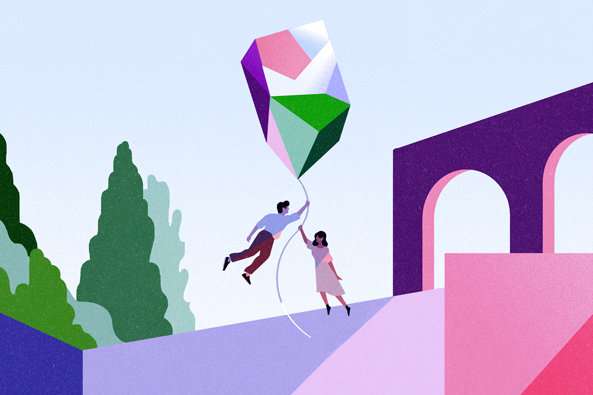Close intercultural romantic relationships and friendships can boost creativity

You've worked abroad. You've lived abroad. But have you had a close friendship or romantic relationship with a person from a culture drastically different from your own?
If not, you might be missing out on a powerful way to boost your own creativity, recent research shows.
A study by MIT Sloan assistant professor of work and organization studies Jackson Lu and his colleagues, entitled "'Going Out' of the Box: Close Intercultural Friendships and Romantic Relationships Spark Creativity, Workplace Innovation and Entrepreneurship," found that people who experience those sorts of relationships tend to perform better on various psychological tests designed to measure creativity.
The research surveyed 115 MBA students, 108 people who'd dated both someone from their home country and a foreign country, 141 currently employed United States residents, and more than 2,000 foreign nationals who had worked in the U.S. on a J-1 visa and then returned to their home country. Across four experiments, it measured their creativity through various tasks and tests designed to measure both their ability to come up with multiple ideas and to find the best solution to a problem.
It found that:
- MBA students who dated someone from another culture during their program performed better on the tests.
- People who were asked to recall a past intercultural relationship while performing similar tests saw higher levels of creativity than those who recalled past intracultural dating experiences.
- Professionals who kept in regular contact with friends they made in America after returning to their home country tended to see better outcomes in innovation and entrepreneurship.
But only the duration of intercultural relationships, not the number of them that a person experienced, predicted higher creativity. That's due to the deeper cultural learning that takes place in longer-term relationships, the study said.
"The current findings suggest that people cannot simply 'collect' intercultural relationships at a superficial level, but instead must engage in cultural learning at a deep level," the paper reads.
"When in an intercultural relationship, an individual should not eschew cultural differences but rather embrace them, because such differences enable one to discern and learn the underlying assumptions and values of both the foreign culture and the home culture," the authors write. "Without close social interactions, it can be difficult for individuals to juxtapose and synthesize different cultural perspectives to achieve cultural learning and produce creative insights."
Lu said the effect has been seen in the performance of high-profile thinkers of the past, including Marie and Pierre Curie, who were awarded the Nobel Prize for their discovery of radioactivity, and Apple co-founder Steve Jobs, who studied Zen Buddhism in San Francisco. Five of the paper's six authors have themselves been in significant intercultural relationships, too, he said.
"For us, creativity is about connecting dots," he said. Every time someone enters a close relationship with a person from a different culture, they collect more dots to connect to the ones they already have.
"These relationships can also enhance your cognitive flexibility, which means that not only do you have more dots, but you're in a better position to connect them all," he said. "Intercultural relationships force you to switch your cognitive framework. You realize there are differences, and that really pushes you outside the box."
Lu said one need not venture abroad to seek out friendships and relationships with people from different cultures: Globalization has made it easier than ever to connect with each other.
Despite that, the same force has also made it easier for those living abroad to find members of their own community and remain insular, so it falls upon the individual to branch out and meet others.
How organizations can harness diversity to spark innovation
While close friendships and relationships may appear to be a deeply personal topic, organizations can put the researcher's findings to work by helping to cultivate them within their workforce, they write. Doing so can promote innovation and creativity within the workplace.
The first step is to foster an intercultural environment within the firm by opening its doors to individuals from different cultures. If a company has offices spread across different countries, leadership could launch exchange programs between the locations, or provide more support for employees who want to obtain work visas or residency permits.
On a grander scale, changing policies that tax U.S. citizens on income earned abroad—a stance that the U.S. uniquely holds among developed countries—could encourage cultural diversity, the authors write.
Once diversity is improved, companies can begin working to foster closeness between employees from different backgrounds by encouraging employees to embrace their cultural differences. Offering shared activities outside of work and assigning foreign and domestic employees to work on projects together in the office can also improve ties.
"As they transition from mere colleagues to closer friends, employees will have more opportunities to engage in cultural learning at a deep level, thereby sparking creative insights," the authors write.
More information: Jackson G. Lu et al. "Going out" of the box: Close intercultural friendships and romantic relationships spark creativity, workplace innovation, and entrepreneurship., Journal of Applied Psychology (2017). DOI: 10.1037/apl0000212

















